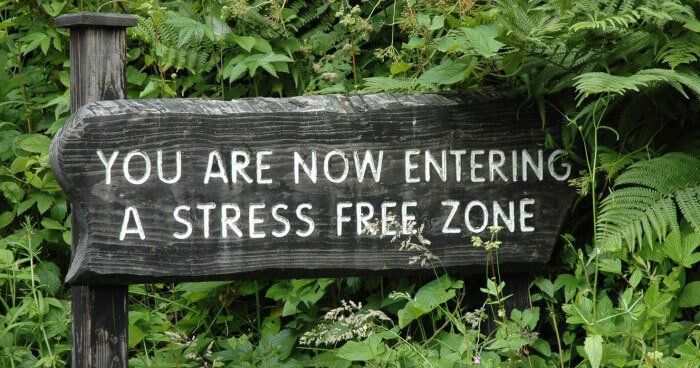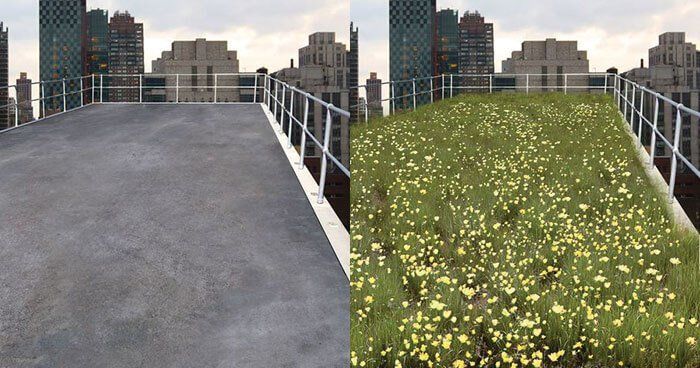Detoxing the City Brain through Nature
Detoxing the City Brain with Nature
By Adam Collett on Thursday October 8th, 2015

How a little bit of 'green' can make a big difference
Green is the prime color of the world, and that from which its loveliness arises. – Pedro Calderon de la Barca
Humankind has spent 99% of its history living in nature. In 1800, only 3% of the world’s population lived in cities. But by 2008, for the first time, humanity was evenly split between urban and rural areas.
Population increase, conflicts and technological developments have all contributed to driving half of us out of the village and into the city, often with the promise of a ‘better life’.
While urban areas do offer particular comforts and opportunities that can’t always be found in the countryside, what is all of this city living doing to our brains?

All these demands are stressing us out
Scientific studies show that people living in cities have a 21% increased risk of anxiety disorders and a 39% increased risk of mood disorders. Meanwhile, schizophrenia has been found to be twice as common in people who are urban born and raised, and the bigger the city, the higher the risk.
The endless distractions of urban living are being shown to affect the area of our brains that manage our attention and self-control. When our environment is highly demanding of our attention – think billboards and traffic and noise pollution – the less we feel in control, leading to feelings of stress.

People exposed to urban environments are forced to use their attention to overcome the effects of constant stimulation…and this in turn over time induces cognitive fatigue. – David G. Pearson and Tony Craig
Since chronic stress has been shown to damage brain cells and modify our neural networks, it’s clear that the city is both wearing us down and endangering the long-term health and vitality of our brains.

Same city, different brains
Have you ever noticed how people from the country are generally more relaxed? Studies are now showing those born and raised in rural areas exhibit lower rates of ‘social stress’ (that is, stress related to their surroundings), even when faced with the same situation as their city-born counterparts.
The city kids displayed heightened levels of activity in two brain regions: the amygdala, which is central to processing emotion and stress, and the perigenual anterior cingulate cortex, which regulates the amygdala. In short, city brains had disproportionately amplified responses to social stress. – Brandon Keim, WIRED
So what is it that makes the rural brain more apt to deal with city life? Some say that urban children suffer from a type of “nature deficit disorder" that leads to ADHD and other developmental issues. This becomes clear when exposure to nature relieves their symptoms while increasing their memory and attention span.
So while it’s clear that being in nature is good for our health, evidence now suggests that ‘green time’ can actually change our brains for the better.

This is your brain on ‘nature’
In one recent study, 90% of people reported an increase in energy during outdoor activities. In another, 95% of those interviewed said their mood improved after spending time outside, changing from depressed, stressed, and anxious to more calm and balanced.
Nature has been shown to improve cognitive function, physical health, and overall mental health so much so that scientists invented a phrase to describe the phenomenon (that would be ‘ecotherapy’).
Being in nature, or even viewing scenes of nature, reduces anger, fear, and stress and increases pleasant feelings. Exposure to nature not only makes you feel better emotionally, it contributes to your physical wellbeing, reducing blood pressure, heart rate, muscle tension, and the production of stress hormones. – Public health researchers Stamatakis and Mitchell
So while it’s clear that getting outdoors is good for our brains, new research is suggesting that even looking at images of nature can improve our mental wellbeing. In one recent study, subjects who spent their 40 second ‘micro-breaks’ staring at computerized images of a green roof – compared to a regular city roof – performed notably better on attention and memory exercises.

The healing power of green spaces
Children at schools with more green space around them, such as trees, shrubs and grass, have a better brain development than children at schools with less green space. – Mark Nieuwenhuijsen, Center for Research in Environmental Epidemiology, Barcelona
By 2050, almost 70% of humanity will be living in urban areas. So although it seems we won’t all be able to move back to the country, what we can do is surround ourselves with as much nature as possible.
Green spaces in cities are being found to reduce levels of cortisol (the stress hormone), as well as decreasing anger, fatigue and feelings of depression. Meanwhile, communities with newly installed green spaces showed a reduction in crime and domestic violence combined with an increase in feelings of unity and belonging.
One study went so far to show that every 10% increase in green space is associated with a reduction in diseases equivalent to an increase of five years of life expectancy.
 Newly planned green space for Mexico City
Newly planned green space for Mexico CityFrom ‘screen time’ to ‘green time’
All of this makes it clear that we have the power to improve our mental wellbeing by integrating more nature into our cities, but only when we take the time to turn our gaze from the screen in front of us to the green around us.
Sadly, in 2015 the average American child spends as little as 30 minutes a day in unstructured outdoor play but up to seven hours in front of an electronic screen.
So while a rapid increase in green roofs, green walls, veggie patches and tree planting programs are all great steps, we need to ensure that we’re actively soaking up as much of that nature as possible. Because the evidence is clear: even a little bit of ‘green’ can go a long way to improving the health of our brains.
Adam Collett
Musician, event producer & cultural worker from Byron Bay, Australia. Sub-editor & contributing writer for UPLIFT.
Related
Featured
Popular
Related
channels
UPLIFT
wellness channel
How to Break the Habit of Overthinking
Eckhart Tolle explores the powerful addiction to thinking, and offers ways to put a stop to thoughts.
references
comments
Join the Conversation
2 Comments on "Detoxing the City Brain with Nature"



Copyright © 2018 UPLIFT
April 21st, 2018






























